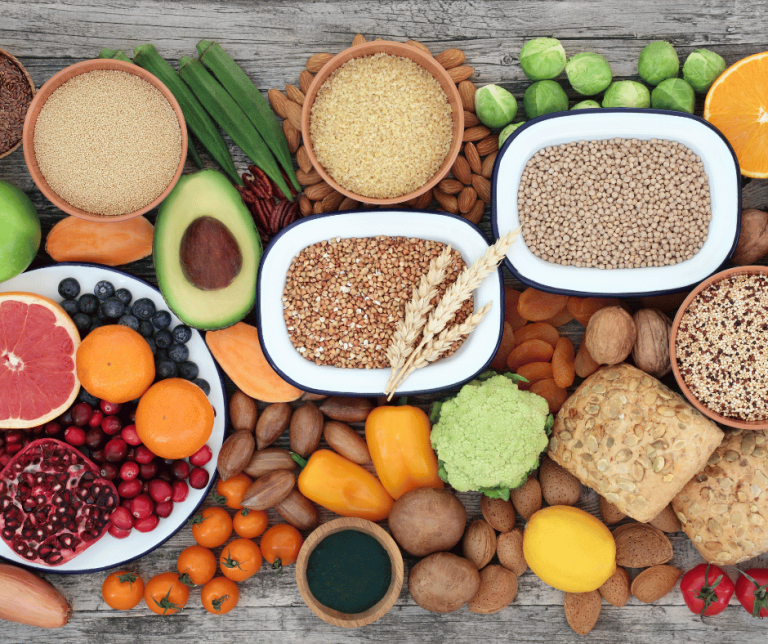
Poop & Weight Loss/Gain: How Your Bowel Health Impacts Your Scale
Your scale isn’t measuring fat — it’s measuring what your gut hasn’t let go of. Hidden stool retention, slow motility, and gut bacteria can quietly

Home » The Art of Pooping: Why Holding It In is a Battle You’ll Always Lose
Let’s be real for a moment. Pooping is one of life’s great, albeit underrated, pleasures. Yes, I said it. It’s something everyone does, yet no one really talks about. But here’s the thing: when you feel that familiar rumble in your gut and the unmistakable signal from your body that it’s time to go, should you hold it or heed the call of nature?
Whether you’re reading this from the comfort of your home or stuck in a crowded public space, you know what I’m talking about. We’ve all been in situations where we can’t poop immediately—whether it’s because we’re trapped in an awkward social setting, stuck in a traffic jam, or simply trying to avoid the dreaded public restroom.
So let’s dive into the taboo topic that no one wants to talk about but everyone experiences. In this extended (and entertaining) blog post, we’ll explore the science behind pooping, what happens when you hold it in, why you should never delay the inevitable, and what you can do to maintain good bowel health. Let’s flush out the misconceptions and talk about why holding in your poop is a battle you’ll always lose.

Before we jump into why holding it in is bad news, let’s appreciate the sheer wonder of pooping for a moment. Yes, you read that right. It may not be glamorous, but it’s one of the most important bodily functions we have. The act of pooping is your body’s way of cleaning house, detoxifying, and literally getting rid of the crap you don’t need. It’s like your digestive system saying, “We’re done with this stuff. Time to take out the trash.”
Here’s a little digestive journey:
Chewing and Swallowing: The process starts the minute you put food in your mouth. Your saliva begins breaking down the food as you chew, while enzymes get to work digesting carbohydrates. After swallowing, the food travels down your esophagus into your stomach.
The Stomach Factory: In the stomach, gastric acids break down the food further into a semi-liquid called chyme. (Sounds fancy, right? It’s still mostly mush.) This is where proteins begin their disassembly.
Into the Intestines: The chyme then enters the small intestine, where bile and digestive juices break down fats, carbohydrates, and proteins. The nutrients are absorbed into your bloodstream, and what’s left over is sent down to the large intestine.
The Final Countdown: The large intestine (a.k.a. the colon) is where the magic happens. Water is absorbed, and what’s left becomes the solid waste we recognize as poop. The colon’s main job is to compact the stool until it’s ready for its grand exit.
Rectal Rendezvous: Finally, the waste arrives at the rectum, and nerve signals tell your brain, “Hey, it’s go-time!” You feel the urge to poop.
So, the next time you think about skipping that bathroom break, remember: this process was painstakingly orchestrated by your body, and holding it in is like slamming the brakes in the middle of a carefully choreographed dance.
Here’s something most people don’t know: your body is programmed to poop at certain times. Ever wonder why you always have the urge to go after a big meal? That’s the gastrocolic reflex in action.
This reflex is triggered when your stomach expands after eating, sending signals to your colon to make room for more food. It’s like your body saying, “Clear the stage! We’ve got more food coming down.” This is why some people, like clockwork, need to head to the bathroom shortly after a meal.
But if you ignore this reflex repeatedly, your body may stop sending such clear signals, making it harder to recognize when it’s time to go. And trust me, you don’t want to mess with that system.

Alright, so we’ve covered the beauty of pooping. But what happens when you hold it in? You might think it’s no big deal—you’ll just go later when it’s more convenient. After all, you’re not going to poop your pants (hopefully), so what’s the harm in waiting?
Turns out, holding in your poop is a slippery slope. Let’s break down what really happens when you delay the inevitable.
The longer you wait, the harder your stool becomes. When your colon is storing poop, it’s not just sitting there in a waiting room. It’s busy absorbing water from the waste. The longer you hold it in, the more water is absorbed, turning your soft, manageable stool into something closer to a brick.
When you finally do decide to poop, what could have been a quick and painless trip to the bathroom becomes a painful struggle. (Cue the sweating, grunting, and internal monologue of regret.) Chronic holding can lead to constipation, which is not only uncomfortable but can result in painful conditions like hemorrhoids or anal fissures.
Think constipation is bad? Enter fecal impaction, which is like constipation on steroids. When you hold your poop for too long, the stool becomes so hard and dry that it physically cannot pass through your rectum. At this point, no amount of pushing will help—it’s stuck.
In severe cases, fecal impaction can require medical intervention to remove. Yes, that means exactly what you think it does: doctors might have to manually remove the impacted stool. It’s as uncomfortable as it sounds, and it’s definitely not something you want to experience.
Remember the gastrocolic reflex? If you ignore the urge to poop often enough, your body can become confused. Your rectum’s sensitivity diminishes, and you may stop feeling the urge to go as clearly as before. This can lead to chronic constipation, irregular bowel movements, and a long list of digestive problems.
Ignoring the need to poop is like hitting the snooze button on your digestive system’s alarm. Sure, you might get away with it a few times, but eventually, your body stops sending the signals altogether.
Let’s not forget the immediate discomfort that comes with holding in your poop. As your body continues to process food, gas builds up in your intestines, leading to bloating, cramps, and that dreaded gassy feeling. You know the one—the kind where you’re praying no one can hear your stomach making noises, or worse, smell what might slip out next.
Holding it in too long can also result in something called megacolon, where the colon stretches and enlarges due to the backup. It sounds bad because it is. You don’t want a megacolon.
Your poop isn’t just made of waste—it’s also full of bacteria and toxins that your body wants to get rid of. By holding it in, you’re keeping these toxins inside your body longer than necessary, potentially allowing harmful substances to be reabsorbed into your system.
Sure, your body is pretty good at keeping things moving, but consistently holding in your poop can cause problems over time. Studies suggest that chronic constipation and delayed bowel movements may even be linked to an increased risk of colon issues down the line, although more research is needed in this area.

You might be thinking, “Okay, I get it, holding it in isn’t ideal. But sometimes, I just can’t go!” We get it—life happens. Maybe you’re in a meeting, on a date, or trapped in the middle seat of an airplane. But here’s the deal: your body knows when it’s time to go, and ignoring that signal consistently is where the real trouble starts.
Regular bowel movements are a sign that your digestive system is functioning optimally. Pooping not only gets rid of waste but also helps maintain the delicate balance of bacteria in your gut, which plays a major role in overall health.
A regular poop schedule can help you feel lighter, reduce bloating, and improve digestion. Plus, it helps prevent the unpleasant conditions we discussed earlier, like constipation and hemorrhoids.
There’s even research that suggests regular bowel movements may contribute to better mental health. The gut-brain connection is a real thing, and keeping your digestive system in check can have positive effects on your mood and energy levels. After all, a backed-up colon isn’t just uncomfortable—it’s draining, physically and mentally.
There’s something undeniably satisfying about a good poop. That’s because the act of pooping actually stimulates the vagus nerve, which plays a key role in regulating your body’s relaxation response. When you go to the bathroom, the stimulation of this nerve can lead to a sense of relief and well-being, sometimes referred to as “poo-phoria.”
So, next time you feel the urge, don’t fight it. Letting go—literally and metaphorically—could be exactly what your body (and mind) needs.
Yes, we all have schedules to keep, but your digestive system isn’t interested in your calendar. If you treat it with the respect it deserves by responding promptly to its signals, you’ll be rewarded with regular, healthy bowel movements.
The key is consistency. Your body loves routine, and setting aside time for bathroom breaks can help regulate your system. For some, this might mean making time in the morning or after meals when your gastrocolic reflex is strongest.

Sometimes, holding it in is unavoidable. Life happens, and public restrooms aren’t always accessible. But what should you do if you can’t answer nature’s call right away? Here are a few strategies to help manage those urgent moments:
When you feel the urge and can’t go right away, the first step is to stay calm. Stress and anxiety can make the urge feel more intense and might even cause your muscles to tense up, making it harder to hold it in. Take deep breaths and try to relax your body.
One of the best ways to manage the discomfort is to distract your mind. Focus on something else—whether it’s a conversation, work, or your phone—to take your mind off the growing urge. Just remember that distraction is a temporary fix, and you’ll still need to find a bathroom soon.
If sitting is making the urge worse, try standing or shifting your position. Movement can sometimes help ease the pressure on your rectum and make the need to poop feel less urgent. Just don’t engage in strenuous physical activity—you’re trying to manage the urge, not speed it up!
While you might be able to hold it in for a while, don’t push your luck. If you’re stuck in a situation where a bathroom isn’t available, try to stay aware of how long you’ve been holding it. The longer you wait, the more discomfort you’ll experience, and the harder the eventual bowel movement will be.
We’ve talked about why you shouldn’t hold in your poop, but let’s go a step further. What does a healthy poop schedule look like? And how can you set yourself up for regular, comfortable bowel movements?
The number one key to a healthy digestive system? Water. Drinking plenty of water ensures that your stool stays soft and easy to pass. Aim for at least 8 glasses a day, and if you’re physically active, make sure you’re replacing lost fluids.
Fiber is your digestive system’s best friend. It helps bulk up your stool and keeps things moving smoothly through your intestines. Load up on fruits, vegetables, whole grains, and legumes. Foods like apples, flaxseeds, and leafy greens are particularly good for promoting healthy bowel movements.
Physical activity stimulates digestion. Even light exercise, like walking, can help keep your bowels regular. If you’re constipated, try incorporating more movement into your daily routine. Exercise helps your intestines move things along, reducing the risk of bloating and constipation.
Consistency is key when it comes to your poop schedule. Try to go to the bathroom at the same time each day, especially after meals when your gastrocolic reflex is strongest. Even if you don’t feel an immediate urge, giving yourself the opportunity to go can help regulate your system over time.
At the end of the day, the most important thing you can do for your digestive system is to listen to it. If you feel the urge to poop, don’t ignore it. Trust your body and make it a priority to respond promptly when nature calls.
To sum it all up, pooping isn’t just a biological necessity—it’s a key indicator of your overall health. Holding it in might seem like a minor inconvenience, but the consequences can add up over time, from constipation and fecal impaction to disrupted digestion and discomfort.
So, the next time you feel the urge to go, do yourself a favor and listen to your body. Whether you’re at work, on the go, or even on a date—remember that your digestive health is worth a little extra effort. Your colon will thank you for it.
In the grand scheme of things, answering nature’s call when it arrives is one of the simplest ways to take care of your body and ensure that everything is running smoothly. After all, pooping is a sign of a healthy, happy digestive system, and there’s no shame in making time for it.
Now, if you’re reading this and you feel that familiar urge, you know what to do—go poop! 💩

Your scale isn’t measuring fat — it’s measuring what your gut hasn’t let go of. Hidden stool retention, slow motility, and gut bacteria can quietly

Your poop is a real-time report card on your gut health—and most people are ignoring it. From color changes to weird shapes to the clues

Wheat isn’t the villain—it’s the kind of wheat that’s wrecking your gut. From ancient grains to modern hybrids, discover how today’s wheat triggers inflammation, worsens

Your gut isn’t just digesting food—it’s controlling your hunger, energy, and even how fast you burn fat. Inside you is a powerful hormone called GLP-1,

Happy Poops.
What about your friends?